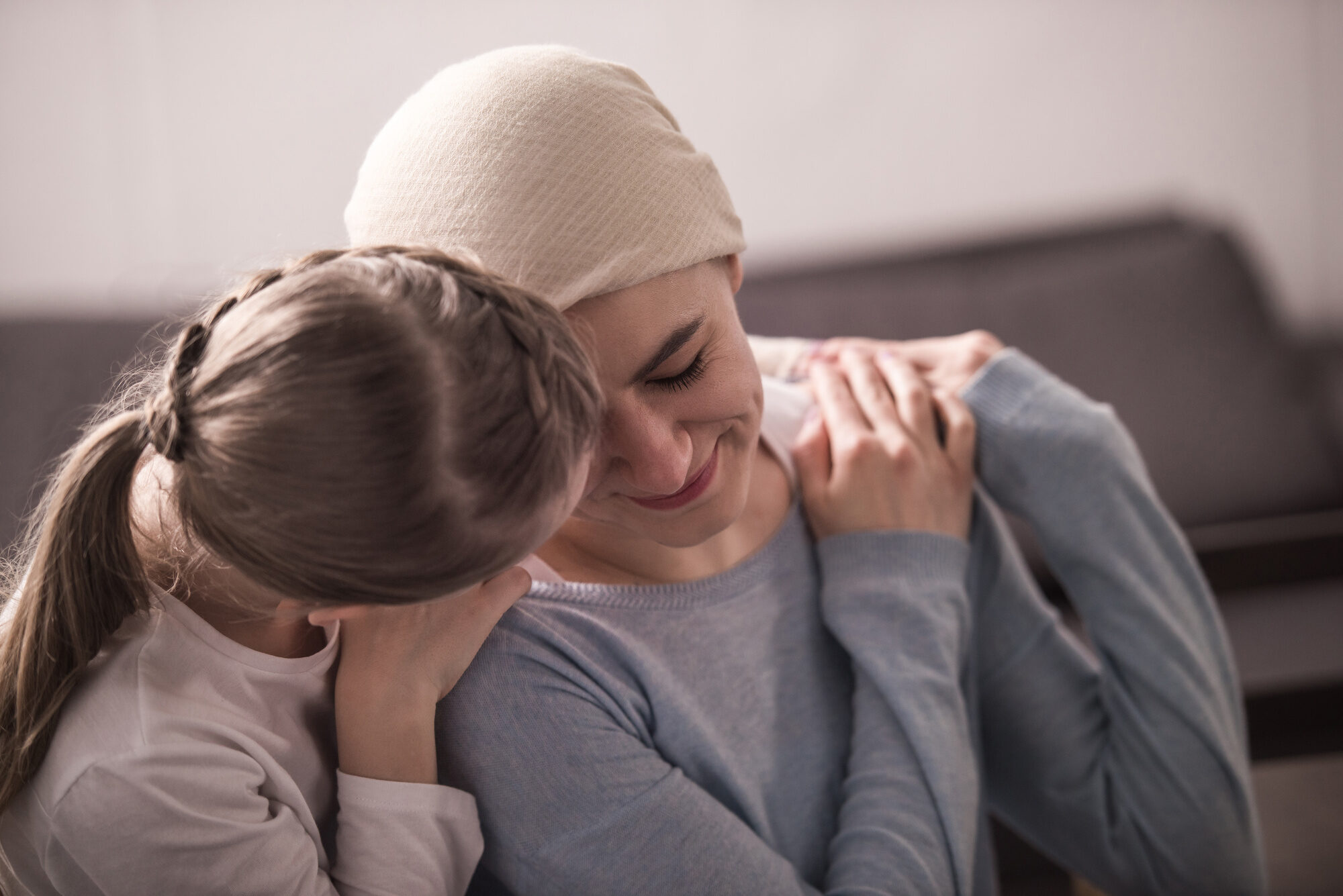Cancer affects the person, his or her friends and family. Our tips for listening, keeping it normal and the do’s & don’ts of supportive care can help you alleviate a loved one’s anxiety.
A cancer diagnosis is often a life-changing moment, not only for the individual with cancer but also for his or her family and friends. Family members may feel unsure of what to do to care for someone with cancer. Friends may be concerned about saying the wrong thing.
It can be a confusing and difficult experience for everyone. But support from loved ones is often a very important factor in dealing with the diagnosis, treatment and life as a person with cancer.
What to expect when a loved one gets a cancer diagnosis & cancer treatment
The first thing you can do to support a cancer patient is to learn what changes the person will need to cope with. This varies by the disease and the individual, but our oncologists will talk to the patient and his or her loved ones about what to expect so they can be prepared. These generally fall into physical and emotional changes and needs.
Physical changes
Each cancer is different, just like each person dealing with the diagnosis is different. Some cancers may be curable while for others the goal may be to achieve a chronic disease status. The intensity of the treatment may vary. Depending on the treatment, physical changes can occur such as hair loss, changes in taste and smell, weight loss, poor concentration and more.
Related Reading: Breast Cancer Survivor Helps Patients Seek Hope and Wellness
According to the American Cancer Society (ACS), the most difficult side effect of cancer is fatigue. After cancer treatment, fatigue can persist for months. It can be surprising just how tired a person with cancer can feel.
Emotional changes
It is important to remember that everyone faces cancer differently. A person may feel anger, sadness, guilt, uncertainty and more. Emotions change over the course of the day.
Individuals with cancer may grieve what they have lost due to cancer, such as energy, time with family, and general health. Personal resources to deal with these issues may include the support of family, friends or special groups. The patient’s oncology team is happy to help her or him adjust to life with cancer in any way possible.
How to provide supportive care in cancer
It is normal to feel uncertain about what to say or do for someone living with cancer.
Listen
According to the National Cancer Institute (NCI), people with cancer often find that when they have the opportunity to express their emotions like anger or sadness, they can move on from them. It may seem obvious and easy to simply listen to our loved ones. But consciously listening and not attempting to solve the situation is important.
Listening without judgment, interruption or dismissing negative emotions is a valuable thing to a person with cancer. Constantly encouraging positivity should be avoided as it may feel as though the person’s concerns and fears are not valid. When you speak, speak from the heart.
The ACS recommends avoiding commenting on a person’s appearance if they are dealing with cancer. Weight loss or paleness can be apparent and the loved one is likely very aware of the different appearance.
It is also not advisable to relate stories of someone else dealing with cancer. This can feel dismissive of the loved one’s situation and is not helpful.
Keep things normal
It may be helpful, initially, to offer help or perform tasks your loved one typically performed, but after some time it may make the person feel helpless. Continuing to cook or work can make life seem more normal for some people living with cancer, as does engaging in conversations that do not involve cancer.
Keep in mind that cancer treatment takes time. Staying connected through regular check-ins, calls or letters can be meaningful and ensure the loved one does not feel forgotten after the cancer diagnosis. Continue to invite people with cancer to events and gatherings so they feel included, even if they cannot attend.
Provide practical help
While some people living with cancer value performing tasks they did before the diagnosis, sometimes the disease or treatment of it may cause them to be unable to do everything. In these cases, it is normal for friends and family to want to help.
Here are some suggestions that may be useful:
- Offer a ride to and from appointments.
- Arrange daycare or offer to help with childcare.
- Prepare or send a meal.
- Take the pets for a walk or to the vet.
- Help with laundry.
- Assist with errands.
Educate
Cancer is a topic many hear about but often don’t have a clear understanding of the symptoms, treatments, side effects and general details. Learning about cancer can help alleviate some of your misconceptions and anxiety associated with not understanding the disease.
However, educating yourself about cancer does not mean you should offer unsolicited advice about cancer or the feelings cancer may bring up.
Encourage participation in a cancer support group
Your help in supporting a loved one with cancer is invaluable. But you can’t do it all, and there are some aspects of support you can’t provide.
For example, some cancer patients might not think a family member really understands what they are going through. However, a support group of other cancer patients might be an excellent resource for you and the patient. It’s often the encouragement of a loved one that gets a cancer patient into the mindset to join a group.
Being with other cancer patients can validate the feelings and emotions of your loved one with cancer. These are people who are dealing with the same or similar issues, and as such can offer perspectives a person without cancer can’t provide.
Being in such a group can be therapeutic. We offer a list of cancer support groups on our Cancer Resources page.
Do
- Respect their privacy. Some people are not willing to talk about their diagnosis, and that’s normal.
- Respect their treatment decisions.
- Include them in events. Let them decide if they cannot attend rather than assuming they may not be well enough to join.
- Listen without offering unsolicited advice or judgment.
- Offer practical help.
- Understand that there will be good and bad days, both physically and emotionally.
- Let them know you care.
Don’t
- Assume the person is now incapable of performing work or tasks at home.
- Take emotions or silence personally. A person with cancer may need a long time or the space to feel angry.
- Be unwilling to hug or touch.
- Use phrases such as, “I can imagine how you feel” or “I know how you feel.”
- Offer advice unprompted.
- Only talk about the cancer. This person is more than his or her cancer diagnosis.
cCARE’s Survivorship Care
Our Cancer Survivorship Care provides patients with valuable information on what to expect once they have been successfully treated for cancer. Connecting patients and loved ones with resources as we do helps them to move forward after cancer, and discover their “new normal.”

